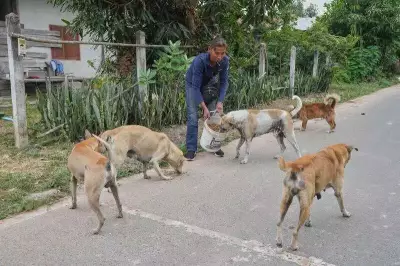
The Uttar Pradesh government has initiated a significant legal move to withdraw the criminal case against all accused in the 2015 lynching of Mohammed Akhlaq in Dadri. This development marks a dramatic turn in one of the most high-profile communal violence cases that had drawn national and international attention.
The Legal Proceedings Begin
On Tuesday, the Gautam Buddh Nagar district government counsel filed an application before the local court seeking permission to withdraw the case against all accused individuals. The application cites lack of evidence as the primary reason for this unprecedented move. The court has scheduled the next hearing for February 12, when it will consider the government's request.
The case involves the tragic incident that occurred on September 28, 2015, when Mohammed Akhlaq, a 52-year-old resident of Bisara village in Dadri, was brutally beaten to death by a mob following rumors that his family had consumed beef. The violence erupted after an announcement from a local temple claimed that the family had stored and consumed beef, which led to hundreds of villagers gathering outside Akhlaq's residence.
Case Background and Investigation
The initial investigation had named 18 accused persons in the case, with the chargesheet detailing their alleged involvement in the violent mob attack. Among the evidence presented was the recovery of a weapon allegedly used in the crime - a meat knife recovered from one of the accused individuals. The forensic analysis of the weapon became a crucial element in the investigation.
The case had been proceeding through the judicial system for over eight years, with various developments and legal arguments from both sides. The prosecution had built its case on eyewitness accounts, forensic evidence, and the sequence of events that led to the violent attack on Akhlaq and his family.
Political and Social Implications
The decision to seek withdrawal of the case has sparked fresh debates about justice delivery in communal violence cases and the political implications of such legal moves. Legal experts and human rights activists have expressed concern about the message this sends regarding accountability for mob violence.
The Akhlaq lynching case had become symbolic of the growing incidents of cow-related violence in the country and had prompted widespread discussions about religious tolerance and rule of law. The government's current move to withdraw the case raises questions about the future handling of similar sensitive cases involving communal violence.
As the court prepares to hear the government's application next month, legal experts are closely watching the proceedings. The court's decision on whether to allow the case withdrawal could set significant precedents for how similar cases are handled in the future and what constitutes sufficient evidence in mob lynching cases.





